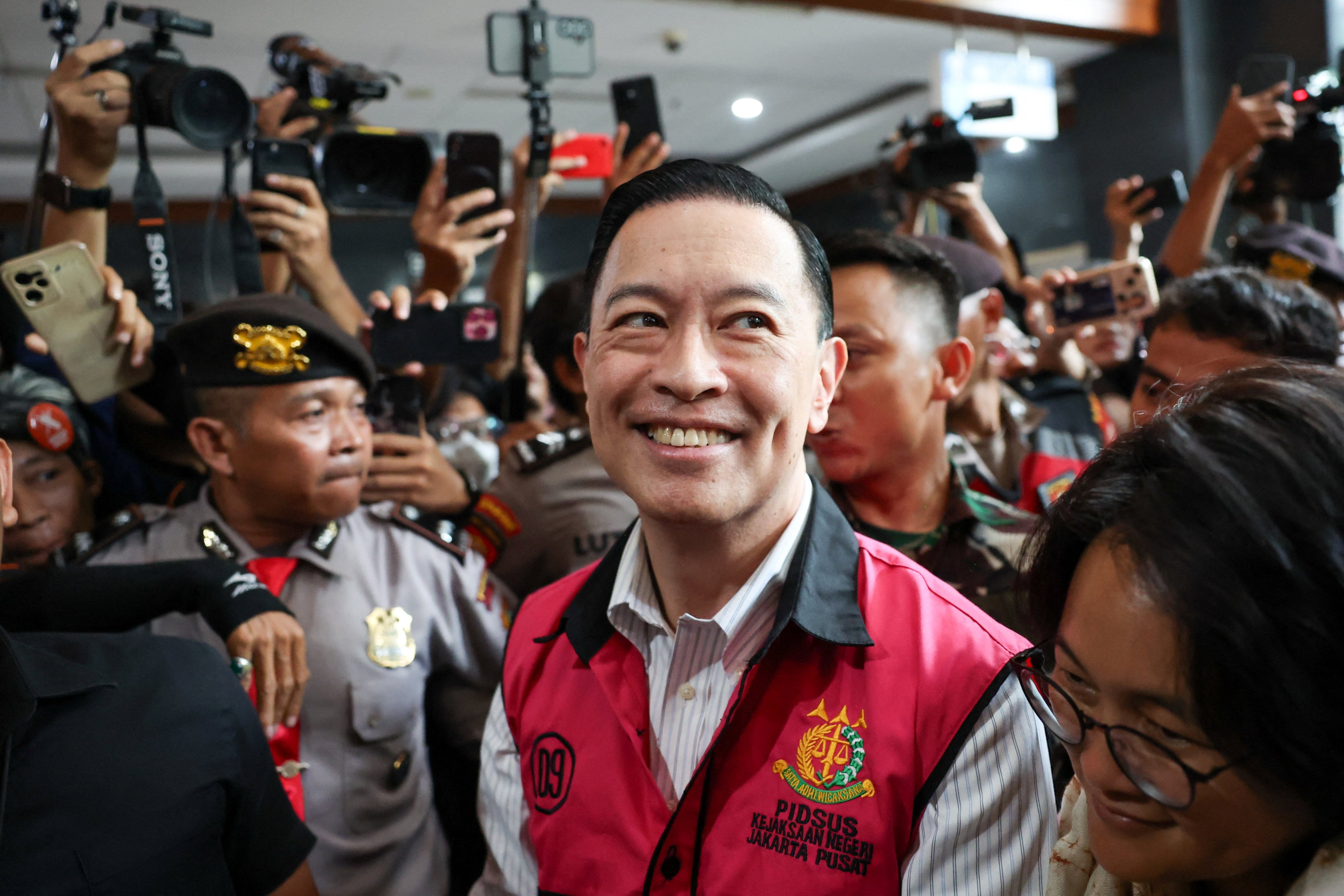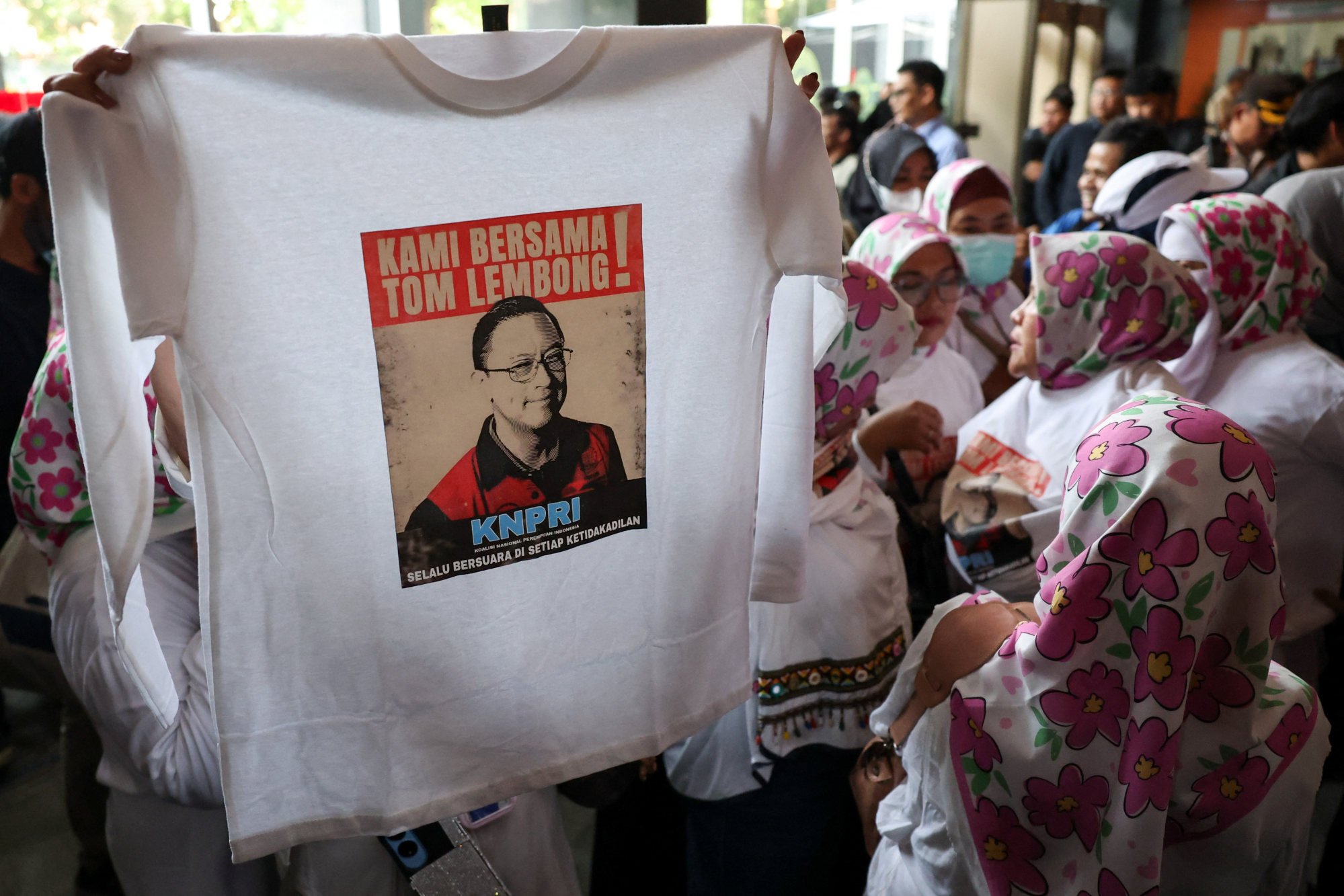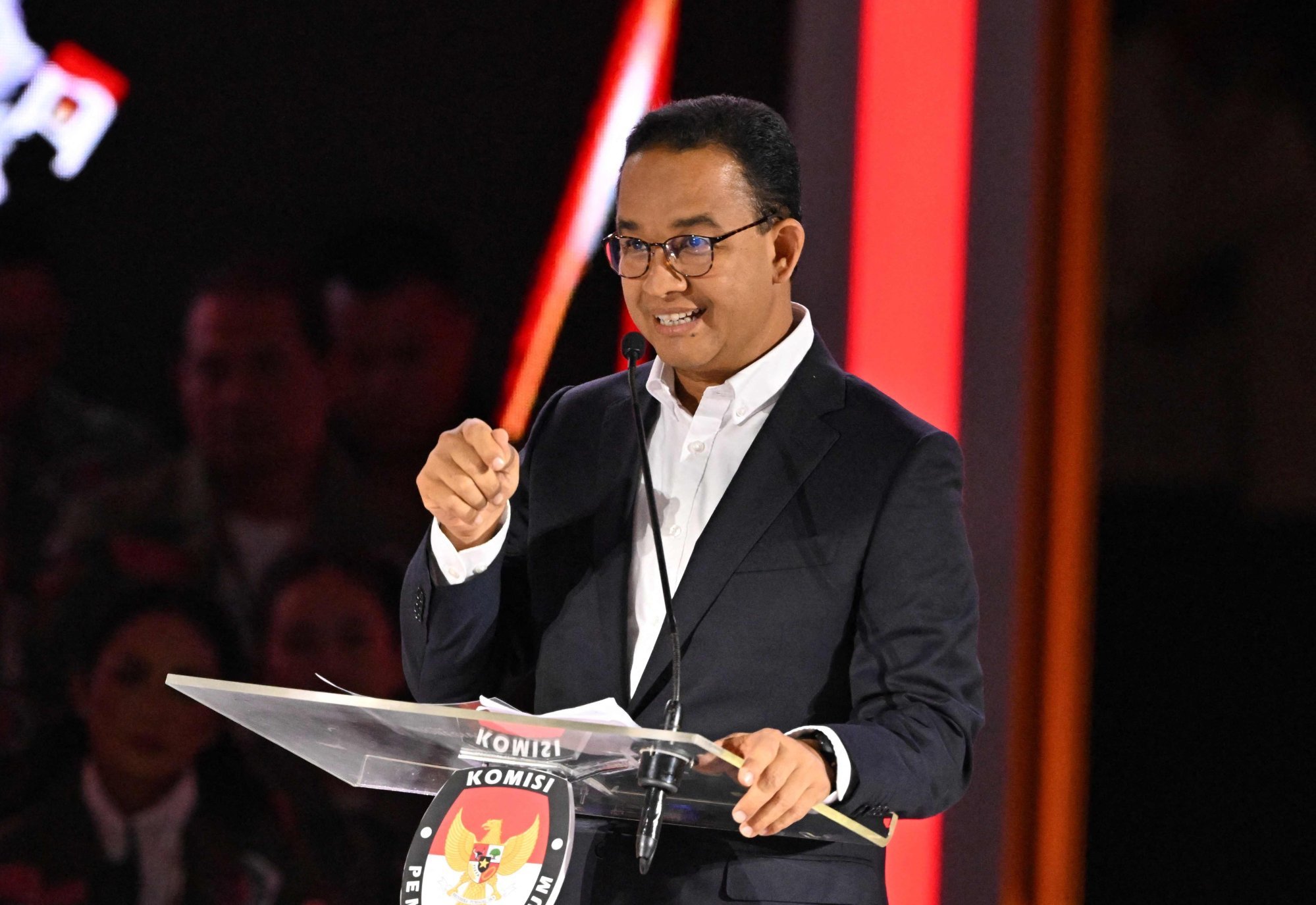Indonesian ex-minister’s jail term: corruption or ‘politically’ motivated?
Analysts question basis of court ruling and whether former trade minister’s close ties to opposition politician Anies Baswedan was a factor in verdict

A recent prison sentence for a former Indonesian trade minister has raised eyebrows over alleged political motivations, given the defendant’s loyalty to an opposition politician.
Last Friday, judges at a corruption court in Jakarta sentenced Thomas Trikasih Lembong to 4½ years in jail and a fine of 750 million rupiah (US$46,000) for improperly granting sugar import permits, during what the prosecutor said was a surplus of local production, when he was trade minister in 2015-16. Prosecutors previously sought seven years’ imprisonment for Lembong.
Sugar production in 2015 reached 2.49 million tons, while domestic consumption was 2.12 million tons, according to data from the statistics agency. Prosecutors also argued that the policy was issued without inter-ministries discussion, as well as recommendation from the Ministry of Industry.
Lembong’s defence team has denied wrongdoing, saying there was a sugar deficit at that time.
Harvard graduate Lembong was campaign manager for losing candidate Anies Baswedan in last year’s presidential election. Both men served as ministers under former president Joko Widodo’s first-term cabinet, before they were reshuffled in July 2016.
Lembong was once Widodo’s close ally, having written speeches for Widodo from 2013, when he was Jakarta governor, until the end of his first-term presidency in 2019. Among famous Lembong-made speeches for Widodo was his Game of Thrones-laden address during the International Monetary Fund meeting in Bali in 2018, when the former president said “winter is coming” due to the unstable global economy.

In last year’s election, Widodo gave his support tacitly for now-President Prabowo Subianto, who tapped Widodo’s eldest son, Gibran Rakabuming Raka, as his running mate.
In court on Friday, Alfis Setiawan, one of the judges, said Lembong’s import policy in 2015 had caused 194.72 billion rupiah (US$11.9 million) in state losses, much lower than the prosecutor’s estimation of 578.1 billion rupiah. The court ruled that Lembong, as a trade minister, “seems to prioritise a capitalist economy over an economic-democracy system”, pointing out that the latter placed weight in “general welfare and social justice”.
Alfis said Lembong was not obliged to return any financial assets to the state as he did not obtain personal gain from the corruption act he committed. He also did not have mens rea, or intent to commit illegal acts, when he greenlit the import policy.
Speaking to reporters after the sentencing, Lembong said the lack of mens rea was “the most important” element in the court ruling.
“What I find a bit odd or strange is that the panel overruled my authority as minister of trade. I believe the law, government regulations, and all related provisions clearly mandate the minister of trade to regulate governance, including the trade of essential commodities,” Lembong argued last Friday.
Unhandled type: inline-plus-widget {“type”:”inline-plus-widget”}
Lembong filed an appeal on Tuesday.
“We have listened to all the panel of judges’ considerations, and of course, based on legal reasoning and the evidence presented at trial, many of them are inconsistent. Therefore, we are filing an appeal,” said Zaid Mushafi, one of Lembong’s lawyers.
The Attorney General’s Office will also file an appeal against the court’s sentences “within seven days of the verdict”, Anang Supriatna, a spokesman with the office, said on Tuesday.

‘Political overtones’
The imprisonment of Lembong has sparked controversy among the public, as critics allege the case was politically motivated, while law experts question the basis of the court ruling.
“Today’s verdict is a sign that justice in this country is far from complete. Democracy is not yet firmly established. We will continue to fully support his steps to seek justice until the end,” Anies wrote on X on Friday.
Support for Lembong also came from Hilmi Firdausi, a popular Islamic cleric, who wrote on X that he was worried that “smart people with conscience and common sense, integrity, and who refuse to suck up will increasingly steer clear of politics because they don’t want to end up the same way. I hope I’m wrong”.
Ambang Priyonggo, a political analyst at the Multimedia Nusantara University in Tangerang, said the case “has stronger political overtones than legal ones”.
“The closeness between Tom Lembong and Anies Baswedan makes the political nuances [in this case] thicker. [Other trade ministers] were in a similar situation, allowing sugar import, but they received [different] treatments,” Ambang told This Week in Asia.
Indonesia continued to import sugar under four different trade ministers after Lembong.
According to Ambang, Lembong’s case will make state officials “be more cautious in making policies related to budget use” for fear of prosecution.
Yudi Purnomo Harahap, a former investigator with the Corruption Eradication Commission, said the verdict was controversial as the judges found “no flow of money to Lembong”.
“I’ve often handled corruption cases where there was no flow of money, but there had to be actions at the outset, that the person acted deliberately and they were aware that their actions would harm the state’s finances and that there would be a party who would benefit [from the action],” Yudi said.
“That is why mens rea or malicious intent is very important in cases of corruption, because it will differentiate it from merely administrative violations.”
He also said Lembong did the “right move” to file an appeal as the case was “far from over”.
Andi Saputra, a spokesman with the Central Jakarta District Court, dismissed the accusation, saying on Monday that “the panel of judges is not contaminated and they are not [exposed] to pressure, whether it is political and so on”.
“We ask the public to be patient because the legal process is still ongoing,” Andi said.